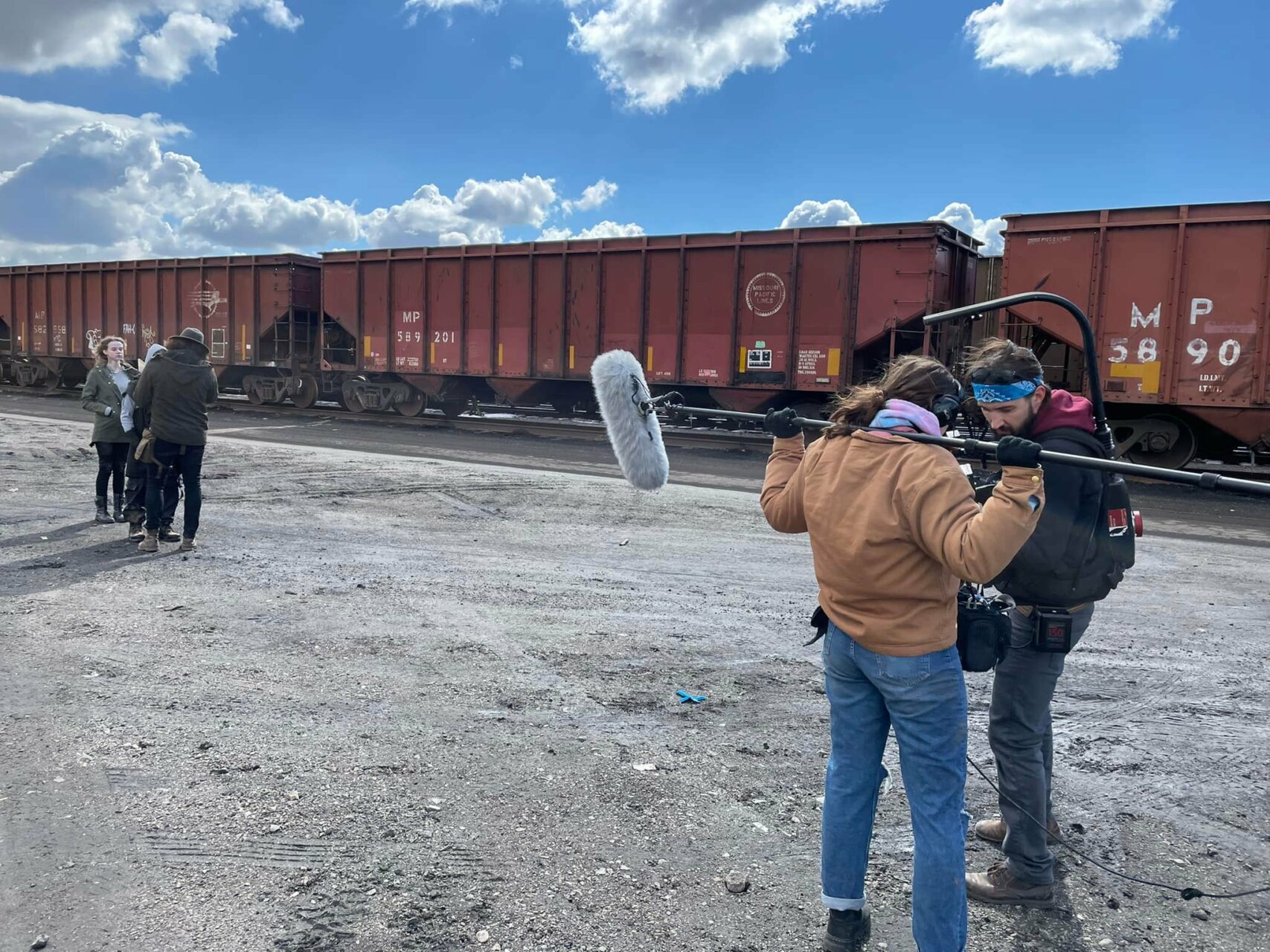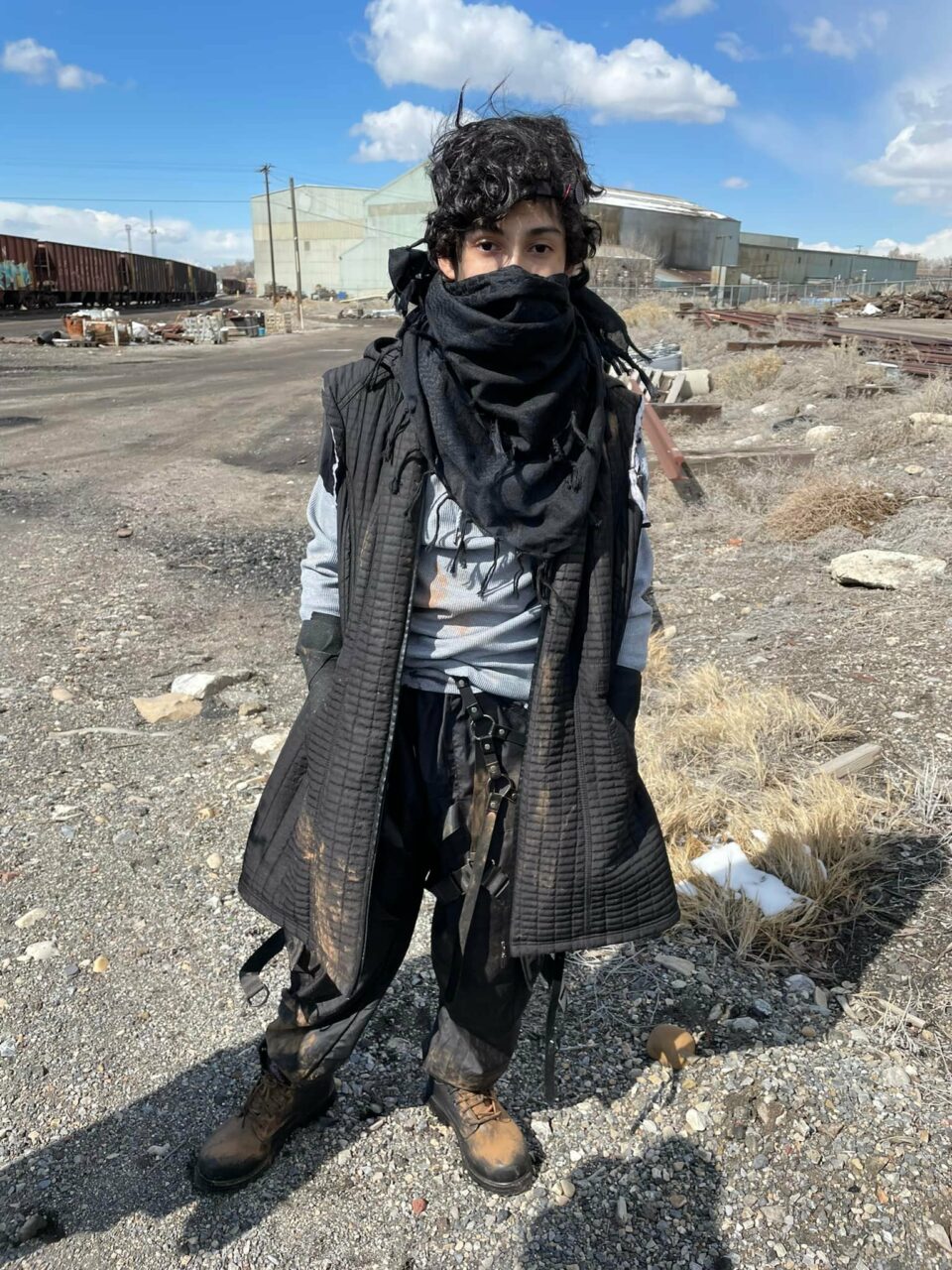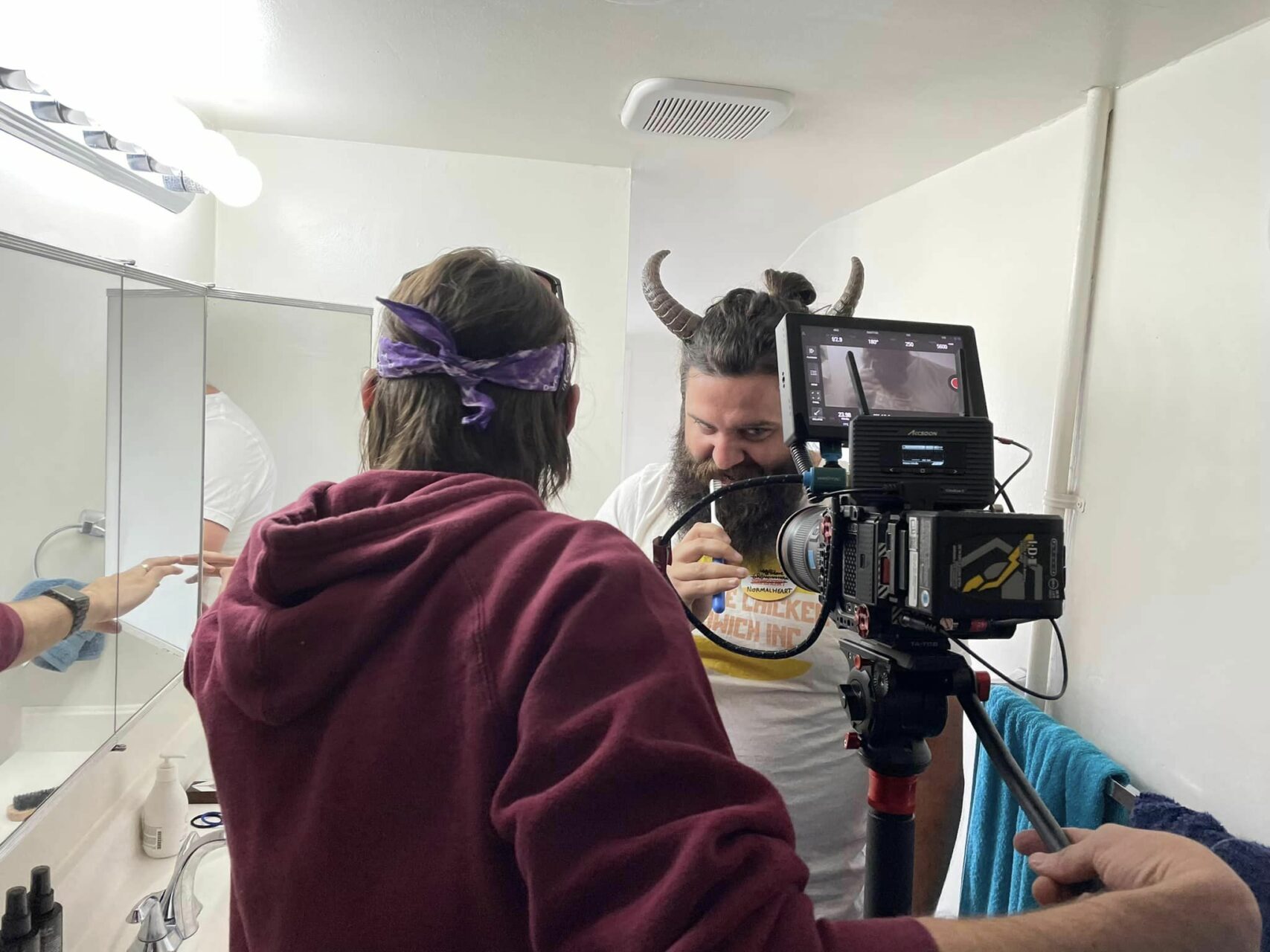Ogres, like people, know not to settle for a mediocre chicken sandwich. Unlike humans, they may take a quest beyond the walls of their chain chicken store and into the great unknown to locate the ingredients for a superior sandwich.

Or at least that is what the director and founder of Utah-based film nonprofit Thunder Feather, Levi Harris, imagines.
When former BYU student Harris came up with his first idea for a short film, the main character was autistic. He did not know that this choice, a natural expression of his creative mind, would lead to a passion for directing, a chance to connect with the neurodivergent community and an opportunity to change the environment of film sets.
“I definitely knew I needed to be involved in movies for a long time,” Harris said. “There was this really personal experience that I had that (told me) this is what I needed to do.”
According to Harris, his ADHD allowed him to create film sets that are more inclusive and accessible to neurodivergent individuals.
Definitions of neurodivergence can vary, but many include conditions like ADHD and autism spectrum disorder, Harris explained. Neurodivergent people have brain differences that impact how their brain works, he said.
“If I would have had a different kind of brain, I don’t think I would have gone down this path to help other people,” Harris said.
And it all started with an idea for a short film.
Once upon an idea
Years of theater experience on traditional film sets, along with a lifelong passion for storytelling, gives a sort of flow to his creativity, Harris explained.
“A lot of times when you are writing a story, it just reveals itself to you,” Harris said. “I wrote the story to the first film, just the skeleton of it, and I realized that the main character was just a little boy lost in the woods. And he was autistic. That was just what I felt about the character.”
Once it was clear the character was autistic, it was time to cast — but with a twist.
Meet the heroes
Traditional movie sets usually cast neurotypical actors, according to Harris.
Rachel Banner, an actress with autism spectrum disorder, said that acting is often unaccommodating to neurodiverse actors.
“If you have ever been on a film set, it is not the most autism friendly place,” Banner said.
But when Harris started casting for his short film, he wondered if he had to follow the long-standing practice of casting neurotypical actors.
“Usually, you cast a neurotypical actor to pretend that they are autistic,” Harris said. “Does that have to be the case? Are there autistic individuals out there who want to be in a film?”
He decided to hold open auditions for neurodiverse actors.
“It took me about 10 seconds into the first audition to (say) this is what we are doing,” Harris said. “Every actor needs to be on the autistic spectrum.”

Neurodiverse individuals often mask, which is a practice of hiding parts of oneself to fit in, according to Dr. Hannah Belcher in her statement “Austistic People and Masking” for the National Autistic Society.
Harris said he realized that masking was an asset for neurodiverse actors.
“To a degree all neurodivergent people mask,” Harris said. “We all put on this outside. What I realized when I started working with autistic actors was the masking became a superpower. There is immense untapped potential.”
The strength of these characters also comes from Harris’s dedication to including actors like Banner in all steps of the creative process.
Banner described the interview process as impressively unique.
“(He called and said) ‘Let’s chat. I want to hear your point of view on things,’” Banner said. “It was the coolest audition I’ve ever been to.”
Harris’s best friend and producer Landon Newton described the collaboration between Harris and his actors.
“The stories are heavily influenced by some of the neurodivergent and autistic actors that are featured,” Newton said. “They should be a part of the creative process that is meaningful for them.”
When Harris started the casting process for his short film M011y (Molly), he knew Banner would be his protagonist.
“I knew she was M011y,” Harris said. “She was always meant to be M011y.”
After the casting call, Harris’s directing created a unique experience on set that lead to excellent performances, according to Banner.
The journey commences
In casting a short film of 97% neurodiverse actors, Harris wanted to challenge traditional directing and create spaces where actors felt safe to give their best performances.
“When I prioritized the actors, and created a space where they were safe, and able to be themselves, I got performances that I didn’t even imagine could exist,” Harris said.
Harris said he lets go of the traditional director role while prioritizing the mental and physical well-being of his actors.
“There was a time where our main character had a sort of panic attack,” Harris said. “We were already over budget, and we didn’t have the money to go one more day at all. It would have been easy to just cancel or say that we have to do it right now. My role on set is different than that.”
Changing the ending
After three short films, Harris faced a dilemma: continue making neurodiverse films without much support or pull away.

“The organization came about because I thought I was done,” Harris said. “I got a really strong impression that I wasn’t done. It was one of the scariest things.”
Harris went all in, creating Thunder Feather, an organization dedicated to providing opportunities for neurodivergent actors.
“It was one of those moments where I couldn’t deny that is what I needed to do,” Harris said. “It was this amazing experience that I never sought out to do, but it found me.”
Happily ever after?
Harris said he is not close to being done using his abilities to help others.
“I know what it’s like to not (understand your brain) for many years,” Harris said. “(Neurodiverse) actors will lend a lot of who they are and what they are feeling to their characters. We try to find a place for them.”
Thunder Feather has three short films in postproduction and is working towards a feature length film.
For more information on Thunder Feather and to watch its short films, you can visit its website.




